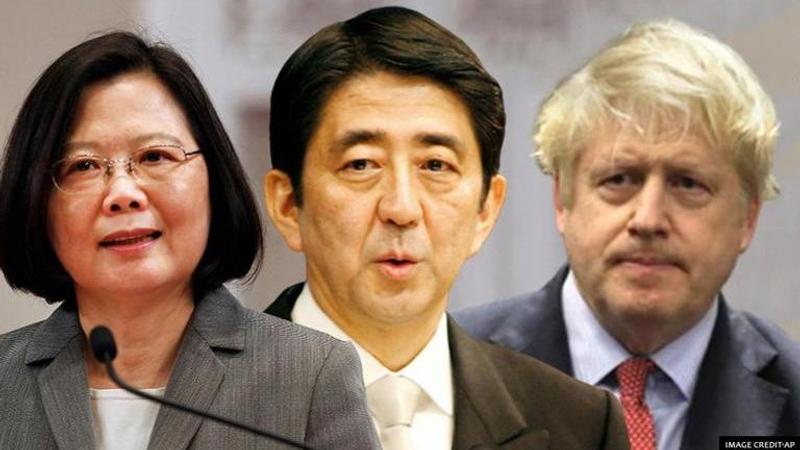Published 15:32 IST, August 28th 2020
Shinzo Abe resigns: British PM, Taiwan President laud his successful, positive stewardship
UK Prime Minister Boris Johnson, Taiwan President Tsai Ing-wen react to Japan Prime Minister Shinzo Abe announcing his resignation on Friday, August 26.

UK Prime Minister Boris Johnson said on Friday, August 28 that during his time as Japan Prime minister Shinzo Abe has “achieved great things” for both his nation and the entire world. Following the announcement of Abe stepping down from his position, Johnson noted how under his leadership the UK-Japan tied have strengthened in numerous aspects from trade to cultural links. British PM expressed his gratitude for Abe’s contribution to the role of Japan PM and wished him good health.
Taiwan President Tsai Ing-wen also reacted to the Shinzo Abe’s resignation and said that he was “always friendly” to Taiwan. From Taiwanese policies to safeguarding the rights of its citizens, Tsai Ing-wen lauded Abe’s “positive” nature. Expressing her hope of his health, Taiwan President said that she values his “friendly feelings towards Taiwan”.
Taiwan President as quoted by agency sources, “Prime Minister Abe was always friendly to Taiwan, whether on policy or the rights and interests of Taiwan’s people – he was extremely positive. We value his friendly feelings towards Taiwan and hope he is healthy.”
Shinzo Abe resigns citing health concerns
Japan’s longest-serving PM announced his resignation during a press conference on Friday, August 28 citing a chronic health problem that has resurfaced. He also told the reporters that it was “gut-wrenching” to have left a number of his goals unfinished. Abe reportedly had ulcerative colitis since he was a teenager and said that the condition was in control with the appropriate treatment.
Abe’s stepping-down as the country leader came after the speculations about his health and well-being began resurfacing in the summer and drastically grew when he visited Tokyo hospital two weeks in a row for unspecified health checkups. He has said that he is now on a fresh treatment that requires IV injections and even though there are some improvements, there is no surety that it will cure his condition and therefore, decided to resign.
Shinzo Abe had become the youngest Prime Minister of Japan in 2006 at the age of 52 but his tenure abruptly ended a year later because of his health. In December 2012, he again returned to power and prioritized economic measures over his previous nationalist agenda. Since then he won six national elections and held a tight grip over his power. Until his term ends in September 2021, Abe is expected to stay while anew party leader is elected and formally approved by the parliament.
(With agency inputs)
Updated 15:32 IST, August 28th 2020




